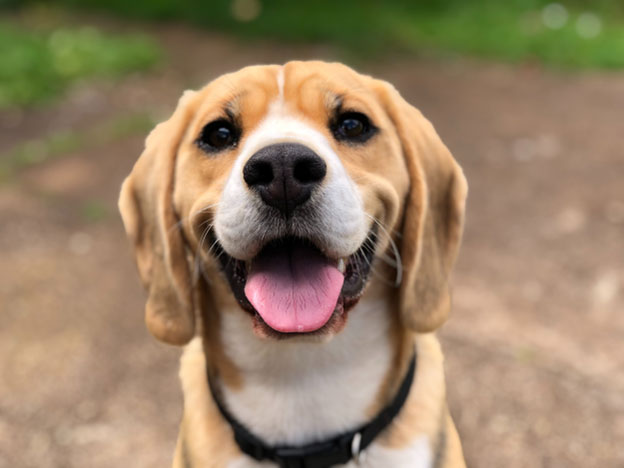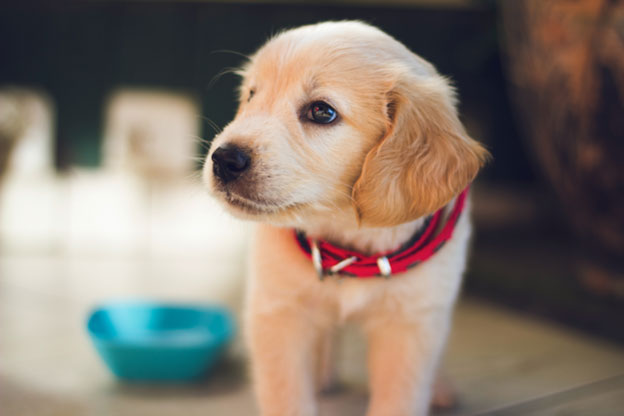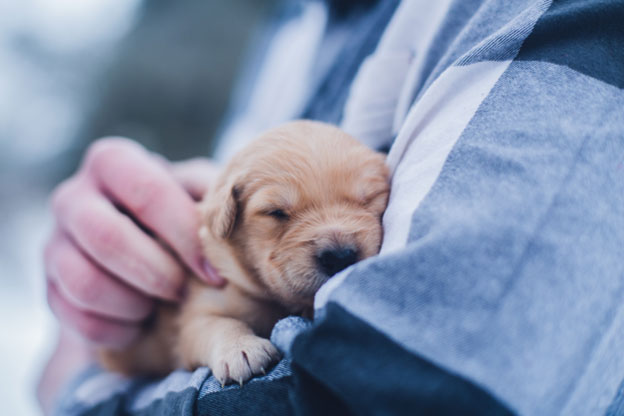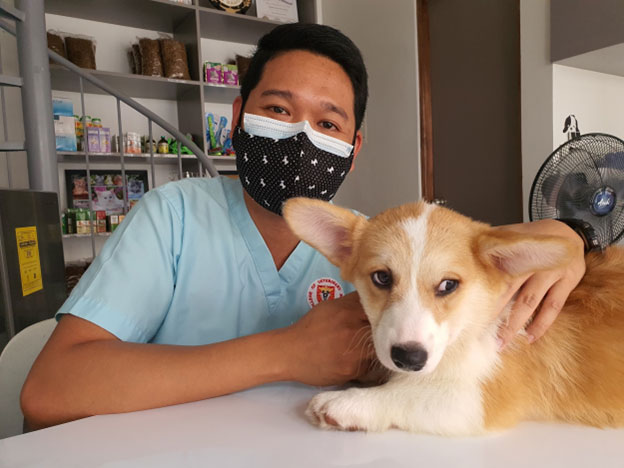Have you ever been petting your pup and heard a strange noise, like a hiccup? Have you wondered why do dogs get hiccups just like humans? Hiccups are an interesting phenomenon that can occur in both humans and animals. In this article, you will learn about the causes, management, and prevention of dog hiccups to ensure your pup’s health and happiness!

Understanding Hiccups in Dogs
Dog hiccups are actually quite common and can occur for a variety of reasons. The primary cause of hiccups is a spasm or contraction of the diaphragm muscles. This causes the vocal cords to close, resulting in that familiar “hic” sound. Puppy hiccups may be caused by too much excitement or an abrupt change in breathing pattern. In adult dogs, hiccups can be triggered by eating too quickly or eating something spicy.
Fortunately, most bouts of hiccups will pass within a few minutes without any intervention from pet parents. Some solutions that may help to stop a puppy’s bout of hiccups include feeding them from slow feeders or water bowls and having them drink some water. If hiccups persist for more than 24 hours, it could be indicative of some underlying health issues such as chest cavity abnormalities or wheezing sounds when breathing, so it is important that you take your dog to see their vet if this occurs.
In addition to the treatment and prevention strategies discussed above, light exercises such as walking your pup can also help reduce their heart rate and stop the involuntary spasms causing the hiccups. So next time your pup gets the “hics” don’t worry—it’s completely normal! With these tips in mind, you can rest assured knowing how to handle this situation with ease and keep your pup happy and healthy!

Potential Causes of Hiccups in Dogs
The primary cause is a spasm or contraction of the diaphragm muscles, which causes the vocal cords to close and creates the sound we recognize as “hic”. In puppies, hiccups may be triggered by excitement or sudden changes in the dog's breathing pattern. In adult dogs, hiccups can be caused by eating too quickly or eating something spicy.
However, there are other potential causes that pet parents should be aware of. Prolonged hiccups can sometimes indicate an underlying condition such as chest cavity abnormalities or wheezing when breathing. Fetal hiccups may also occur in pregnant dogs due to their developing diaphragm muscles contracting and spasming regularly throughout gestation.
Managing and Preventing Hiccups in Dogs
To manage your dog's hiccups, try having them drink some water or do light exercises such as walking to reduce their heart rate and calm irregular breathing. If they’ve eaten too quickly or something spicy, it may help to feed them from slow-feeder bowls instead of regular food bowls so that they can eat at a slower pace. Additionally, if your pup is pregnant, fetal hiccups may occur due to diaphragm muscles contracting throughout gestation - however, these should subside after birth.

To prevent hiccups in the first place, ensure that your pup is eating slowly and regularly from their food bowl instead of gulping down their meal too quickly. You should also ensure that their water bowl is always full so that they don’t become dehydrated which could lead to a bout of hiccups. Finally, make sure you keep an eye out for any potential underlying health issues which could cause prolonged hiccups and take them to see a vet if necessary.
Conclusion
In conclusion, hiccups in dogs are usually nothing to worry about and will usually pass quickly. However, pet parents should take steps to manage and prevent hiccups in their pups, such as providing slow-feeder bowls for meals and ensuring that their water bowl is always full. If your pup has been experiencing prolonged hiccups, make sure you keep an eye out for any underlying health issues and take them to see a vet if necessary. All in all, taking the right measures can help your pup stay healthy and happy!
Frequently Asked Questions:
Are hiccups in dogs harmful?
No, hiccups in dogs are generally harmless and usually pass within a few minutes without any intervention from pet parents. While it can be concerning for some owners, hiccups in dogs are usually just a sign of excitement or a change in their breathing patterns, which is perfectly normal. That being said, it’s important to keep an eye out for signs of prolonged hiccups, which could indicate an underlying health issue and should be addressed by a vet.

How can I tell if my dog has hiccups?
If your pup is experiencing hiccups, you’ll likely hear a characteristic “hic” sound coming from them. This is due to the diaphragm muscles contracting and causing the vocal cords to close. Additionally, you may notice that your pup's body jerks slightly as they inhale and exhale with each hiccup. If your pup has been hiccupping for a prolonged period of time, make sure to take them to the vet to check for any underlying issues.
Can certain breeds of dogs be more prone to hiccups?
No, there is no particular breed of dog that is more prone to hiccups than others. While puppies may be more likely to experience hiccups due to their developing breathing muscles and increased excitement levels, any breed or age of dog can get hiccups if the right circumstances present themselves. That being said, there are certain conditions that could increase the likelihood of a pup hiccupping, such as chest cavity abnormalities or wheezing when they breathe, so make sure to take them to the vet if you suspect any of these issues.
Can diet affect a dog's likelihood of getting hiccups?
Yes, diet can affect a dog’s likelihood of getting hiccups. Eating too quickly or gulping down large amounts of food can trigger hiccups in dogs, as can eating foods that are too spicy or salty. Additionally, if your pup isn’t drinking enough water throughout the day, dehydration could also result in hiccups. To prevent this from happening, make sure your pup is eating slowly from slow-feeder bowls and that their water bowl is always full.
What are some medical conditions that can cause hiccups in dogs?
While most hiccups in dogs are nothing to worry about, there are a few medical conditions that can cause hiccups and should be addressed by a vet. These include respiratory infections, allergies, stomach or digestive issues, and chest cavity abnormalities. Additionally, if your pup has been wheezing when they breathe or has been having trouble swallowing food or liquids, these could also indicate an underlying condition that needs to be addressed.


